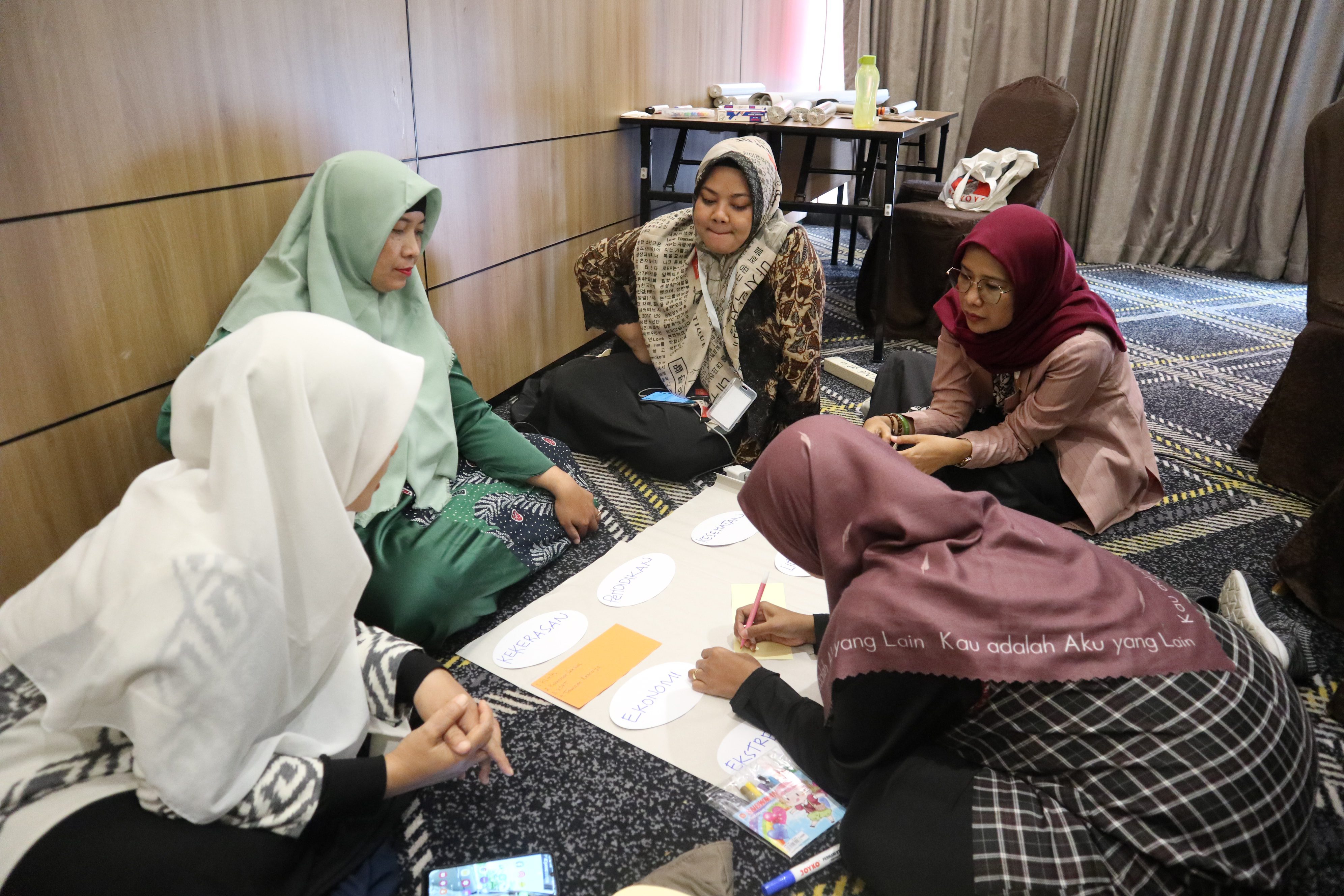



Trigger Warning: Sexual harassment, sexual violence
“Why did you take off your hijab? I sent you to live in a pesantren (Islamic boarding school) so that you know to cover your awrah (private parts).” That is what my mother told me for taking my hijab off towards the final semester of college.
Listening to my mother’s claim after claim made me think deeply. It was certain that she would not believe my actual reasons for taking off my hijab. At the end of her lecture, she conveyed how she was embarrassed about this, especially to hear it from other people.
The decision to take off my hijab was because I felt disgusted with the Muslim attributes that I wore—even with my background as a pesantren student, which had become a burden. I was angry because of the sexual harassment that befell me at the pesantren, which no one knew about until the day I wrote this.
At that time, I didn’t have the capacity to recognize it as a wound, what its impact was, and how to heal it or to strategize a recovery. All I knew was that I was angry.
Removing the hijab was the culmination of all my anger towards religious and educational institutions that should have been able to protect me and other women, because the majority of the survivors I accompanied were women, many of whom wore modest clothing and even wore veils and hijabs. Before on-campus sexual violence cases, Islamic boarding schools as well as other religious and educational institutions received similar attention in the past two years, and as a person who experienced being a survivor and accompanied survivors at that time, that journey was painfully lonely.
During the process of me being furious over the hijab I had taken off, the anger never stopped. I then discovered the fact that sexual violence can happen to anyone regardless of age, clothing, background, time of the day, and so on. Finally, my anger over the hijab was over. Then, I decided to wear a hijab again. Now, I believe that wearing a hijab is not a religious obligation but merely an expression of religious political identity, as is the case of people in other Muslim countries.
Apart from that, I also realized that wearing a hijab in a country with a Muslim majority is a privilege that I have. The privilege of wearing a hijab is that the person is considered pious, sholehah (righteous), or good, holy, and sinless compared to fellow Muslims who do not or have not yet made a decision to wear a hijab, even though their religious obedience might be stronger than mine.
Apart from being a Muslim and wearing the hijab, another privilege that I recently realized I have is that I am a woman. This is true only when compared to the transgender friends I have met in the last three years. Their journey to be equal and to be called ‘teteh, neng, ayuk, mbak dan nona’ (various local nicknames for women) is a struggle against systemic violence. Living in a patriarchal country and society forces people to internalize heteronormative systems that consider heterosexual individuals normal and others abnormal. Thus, the recognized gender is based on innate sex, which only has two categories, namely male and female. In accordance with that, anyone who denies it or defines their identity differently is considered disgusting and acting against nature, social norms, religious norms, and even the state.
Thus, it is certain that their experiences of sexuality are more difficult and heartbreaking. This was clearly conveyed in the testimonies of several LGBTI (lesbian gay bisexual transgender intersex) participants and facilitators in several activities that I was involved in with FAMM Indonesia (Forum Aktivis Perempuan Muda or Young Indonesian Women Activists’ Forum). It’s a privilege to be able to listen to their experiences more closely. I always enjoy listening to stories about the dynamics of their lives, because it gives me the opportunity to practice tact and empathy, as well as hone critical reasoning on the body and sexuality directly and deeply.
In some of the classes on SOGIESC (sexual orientation, gender identity, gender expression and sex characteristics) and sexuality in general, I always felt empty, always starting from scratch. The materials are very easy to understand, but what is difficult is understanding one’s own sexuality. Am I a girl? Why am I a girl? I can answer these questions in an instant, although I hesitate at the end. Why am I a woman who experiences layers of violence? If I’m not a woman, will I also experience it? I can’t answer this one quickly, given the traumatic experience I’ve had. Although [I know that] theories and researches have stated that women and other marginalized groups are vulnerable to violence.
Now that I have gained access to sexuality courses, the fact is that I still need time to really study and understand my body and sexuality while making peace with it, loving it unconditionally, and being grateful to my body, however and whatever has happened to it; it is who is there, who I have, who has not left me. For all human beings, anyone who has had the same experience of being marginalized, discriminated against, and is familiar with violence of various forms, there is no other choice but to empathize and build solidarity for a life that is far more secure, comfortable, equal, prosperous, peaceful, and healing. I know that this struggle requires time, patience, and courage.